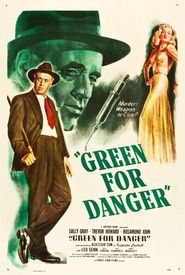Sidney Gilliat, a true Renaissance man of the English film industry, left an indelible mark on the world of cinema, his remarkable career spanning multiple disciplines, including direction, production, and writing, earning him widespread recognition and acclaim.
The life of Gilliat, a man of remarkable talent and creativity, began on February 15, 1908, in the Edgeley district of Stockport, Cheshire, a place that would later play a significant role in shaping his early years and the trajectory of his illustrious career.
In the 1930s, Gilliat's professional journey took a scriptwriting turn, and he embarked on a fruitful collaboration with Frank Launder, a partnership that would yield a multitude of notable projects. One such notable project was The Lady Vanishes, a 1938 thriller directed by the renowned Alfred Hitchcock, a master of the suspenseful and the unexpected.
Gilliat's partnership with Launder continued to flourish, and their next notable project was Night Train to Munich, a 1940 film directed by Carol Reed, a master of his craft and a purveyor of cinematic magic.
Gilliat and Launder embarked on their directorial journey by co-directing the poignant and thought-provoking home front drama, Millions Like Us, which was released in 1943. This marked the beginning of a fruitful collaboration between the two, as they went on to explore a wide range of genres and styles in their subsequent projects.
As the years progressed, Gilliat expanded his creative horizons by venturing into the realm of producing, a venture that commenced in 1945 with the production of The Rake's Progress. This film was particularly significant, as it showcased Gilliat's versatility as a writer, director, and producer, highlighting his ability to excel in multiple roles within the film industry.
Noted British screenwriting duo, Gilliat and Launder, embarked on a remarkable creative journey, collaborating on the development of over 40 films throughout their illustrious careers. In a bold move, they established their own production company, Individual Pictures, which would serve as the hub for their future projects.
While Launder, a master of comedic direction, went on to craft some of the most beloved comedies of the era, most notably the four St Trinian's School films, Gilliat showcased a remarkable versatility by exploring a range of genres, including comedy-thrillers and dramas.
In the early years of their partnership, Gilliat's work was marked by a distinct focus on the thriller and drama genres, as evidenced by the critically acclaimed films Green for Danger (1946),London Belongs to Me (1948),and State Secret (1950).
Notably, beyond his notable endeavors in the realm of film, Gilliat's creative endeavors extended to the realm of opera, as he penned the libretto for Malcolm Williamson's esteemed work, "Our Man in Havana", an opera meticulously crafted in conjunction with the iconic novel of the same name penned by the illustrious Graham Greene. Furthermore, his contributions to the cinematic adaptation of the novel served as a testament to his multifaceted talents and versatility as a creative force.
Malcolm Williamson
Gilliat's personal life was characterized by his union in marriage to Beryl Brewer during the early 1930s, a momentous occasion that would have a lasting impact on his life. This marriage would go on to produce two children, Joanna Gilliat, who would later pursue a career in journalism, and Caroline Gilliat, an accomplished opera singer and educator. The family's legacy would continue to flourish through the next generation, as Gilliat's grandchildren, Amanda Eliasch, Toby Brown, and Camilla Horn, would go on to make their own mark in various fields.
Sidney Gilliat, a renowned figure in the realm of cinema, breathed his last on May 31, 1994, leaving behind a profound and lasting impact on the world of film and extending far beyond its boundaries, a testament to his boundless creativity, innovative spirit, and unwavering dedication to his craft.
Person Biography:
Sidney Gilliat was born on February 16, 1908, in Teddington, Middlesex, England. He began his career in the British film industry in the 1920s, initially working as a screenwriter and later transitioning to direction. Throughout his illustrious career, Gilliat was involved in the production of numerous iconic films, collaborating with notable directors and actors of the time.


























































